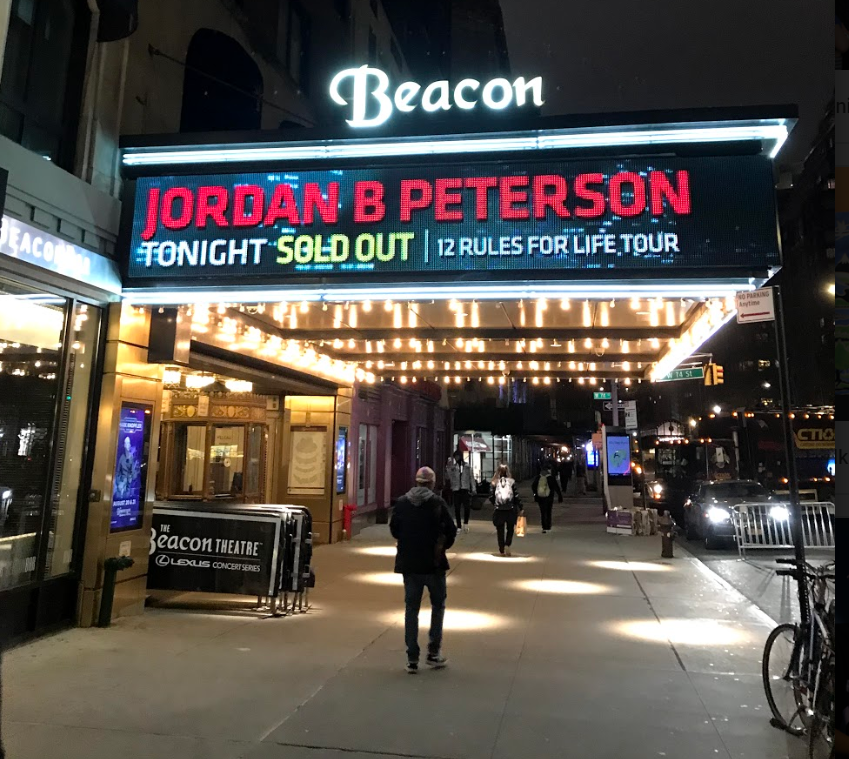‘An Antidote to Chaos’
April 30, 2019
Not a seat was left unfilled on the night of April 17 at Manhattan’s Beacon Theatre. Dr. Jordan B. Peterson, acclaimed Canadian psychology professor turned political figurehead, held a nearly 3,000-person audience. All gathered to learn about his book, “12 Rules for Life: An Antidote to Chaos.”
Sporting a three-piece suit, Peterson spoke at length on issues found in his book, dubbed an “antidote to chaos,” an allusion to today’s hyper-partisan and fast-paced world. As college students know better than anyone, it is often extraordinarily difficult to balance tasks such as classwork, jobs, relationships and extracurricular activities.
Starting out of order, Peterson began with his second rule: Treat yourself like someone you are responsible for helping. In his book, Peterson writes, “To treat yourself as if you were someone you are responsible for helping is, instead, to consider what would be truly good for you.” Using biblical analogies and references to his favorite philosophers, Peterson paints a picture that humans often treat others better than they do themselves. It can benefit anyone to view themselves as someone containing intrinsic value.
Peterson continued with the story of a friend whom he referred to as Chris, “a smart guy” who “read a lot.” Unfortunately, however, Chris associated himself with individuals who had no sense of discipline or responsibility and thus, when Chris came to those friends to address his grievances, they had no advice. Chris subsequently committed suicide after a psychotic break in his 30s.
Peterson uses this anecdote to drive home his third rule — make friends with people who want the best for you.
Anyone familiar with Peterson’s political rhetoric likely has his sixth rule memorized: set your house in perfect order before you criticize the world. “Have some humility,” he said. “If you cannot bring peace to your household, how dare you try to rule a city.” While his sweeping claims stoke the fire of his political adversaries who argue that structural issues are the reason people are held back, they may hold some credence in the hectic lives of college students.
“Is there something I’m doing wrong, or something I’m not doing, that I could be doing that I would do that would set things right?” Peterson asked rhetorically of the audience. “I don’t think there’s anyone who couldn’t come up with an answer to that question if they spent five minutes contemplating it.”
“If you want an answer to a prayer, so to speak, try that one,” he laughed. “You’ll get a bloody answer. It won’t be one you’ll like … that’s for sure, but it will definitely appear.”
The psychologist ended on his eighth rule: Tell the truth — or, at least, don’t lie.
“If all of us brought into being what was only brought into being through truth, what would the world look like? It would be more meaningful. Your truth is the revelation of who you are,” he stated.
Through his theological allegories, Peterson reasoned that because life is suffering, humans have a tendency to lie in order to “smooth things over, or to keep the peace.” But he also reasons that “truth is the light of darkness” and helps us make the best of the future.
“See the truth. Tell the truth,” he opines in his book.
Regardless of political conviction, Peterson’s rules can help serve as a guidepost for a college student’s life during times of stress, growth and learning.













